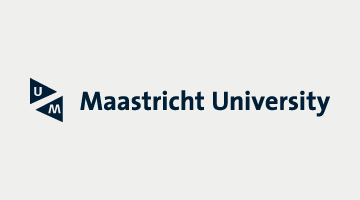Project 7
Discovery, Design and Development of novel inhibitors and PROTACs to regulate PAD2/4
 Host institute: Maastricht University, the Netherlands (UMA)
Host institute: Maastricht University, the Netherlands (UMA)
Supervisors: Dr Kanin Wichapong (UMA), Dr Gerry Nicolaes (UMA)
Co-supervisor: Dr Kees Groen (DGR)
Objectives
1. To discover and develop new potent and specific inhibitors for PAD2/4 and to develop PROTACs to degrade PAD2/4. The new inhibitors and PROTACs will be experimentally tested their activity in related animal models in WP1 by the Doctoral Candidate of project 3.
2. To develop imaging probes binding PAD2/4 which can be used as diagnostic tools in Work Packages 1 and 3.
Expected Results
1. Novel potent and specific PAD2/4 inhibitors and the first PROTACs to degrade PAD2/4.
2. The first derived PROTACs will pave a way to develop new potent PROTACs for PAD2/4.
Secondments
- UP (3 months)
- IIBB (3 months)
- BasicPharma (1 month)
Requirements
Qualifications:
- The candidate should have a Master of Science degree (MSc) in the related research fields: biology, biochemistry, chemistry, biomedical sciences, or pharmaceutical chemistry;
- The candidates who are in the final year of their master’s programs are eligible to apply for the position. However, they must provide proof of their expected MSc degree completion before the project begins in July 2024;
- The candidate should be able to speak, write, and communicate fluently in English (at a B2/C1 level).
Experience:
- The applicants should have experience working in environmental research settings where they have actively participated in research projects, frequently presented results, and engaged in discussions during group meetings and seminars;
- The applicants who carried out internships in related research topics will be given preference.
Knowledge & skills:
- Basic knowledge in Linux is desirable, and experience in artificial intelligence (AI), machine learning, molecular modelling software, docking method, and other related in silico approaches is considered an advantage;
- Experience with programming languages in PERL, python, C++ is a plus;
- Having experience and skills in biophysical methods (e.g., Biacore and ITC measurements) is a plus.
Abilities:
- The candidate must be able to start his/her PhD trajectory in July 2024;
- The candidate should be able to have excellent communication skills and work independently as well as be a good team player in an international environment.
Attitude and disposition:
- Although the main focus of the project is application of the computational methods in drug discovery, the selected candidate should also be open to learn and perform experimental approaches when required;
- The PRAETORIAN MSCA doctoral network requires abundant traveling and social settings. The applicant should be willing to present research orally and in writing, socialize and network at meetings within the consortium but also at major international conferences and at the home institution. The applicant is expected to voluntarily contribute to general public outreach and to the science community including engaging in scientific communities and PhD-communities at Maastricht University.
